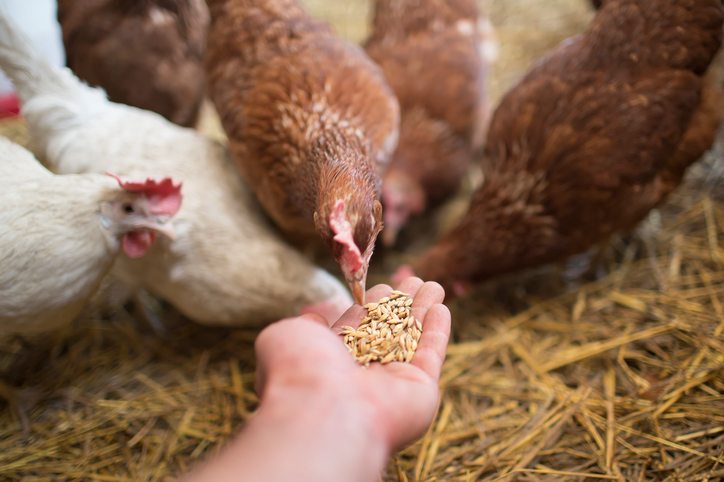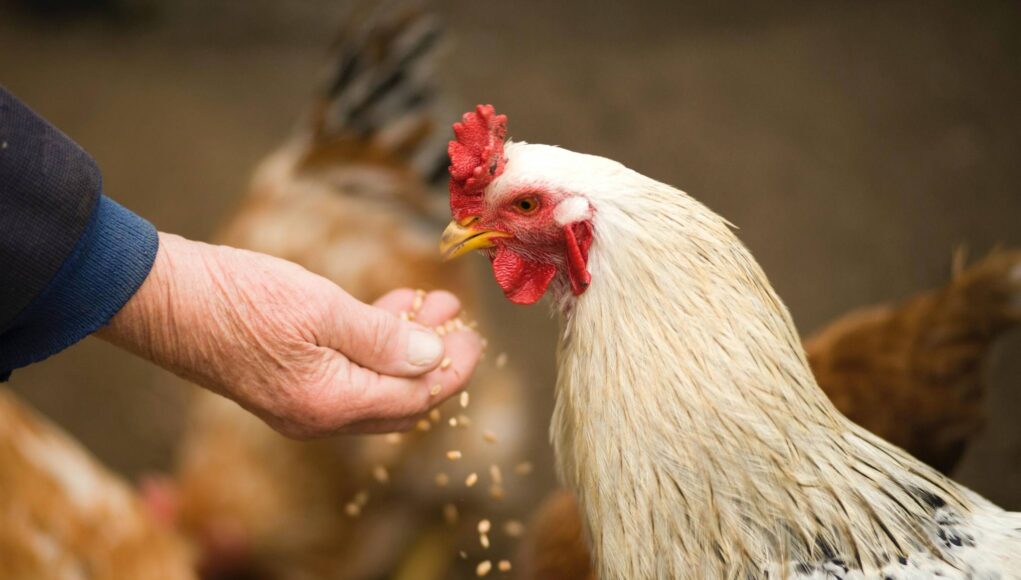Protein plays a crucial role in the health and growth of chickens. Whether you’re raising chickens for eggs, meat, or both, ensuring they receive the right amount of protein is vital. In this article, we will dive deep into how to add protein to chicken feed, along with tips and ideas that are both approved and practical for poultry enthusiasts.

Understanding Protein Needs
Protein is critical for chickens as it helps in growth, feather development, and overall health. Young chicks, laying hens, and meat birds have varying protein requirements that must be met for optimal health. Understanding their needs ensures that they are given the right amount of this essential nutrient.
Why Protein is Essential
Much like humans, chickens need a balanced diet to thrive. Protein is an essential component in their diet as it aids in muscle development, egg production, and maintaining a strong immune system. Without adequate protein, chickens can become weak, lay fewer eggs, and are more susceptible to illnesses.

Natural Sources of Protein
There are several natural methods to increase the protein content in your chicken feed. These options are not only affordable but also environmentally friendly:
- Mealworms: A fantastic source of protein, mealworms can be fed to chickens either live or dried.
- Fish Meal: Rich in protein, it can be mixed with regular chicken feed.
- Leafy Greens: Spinach, kale, and other leafy greens can add protein and other essential nutrients.
- Seeds and Nuts: Sunflower seeds, pumpkin seeds, and nuts are great sources of protein.
- Soybeans: Comparable to meat in protein content, soybeans are an excellent addition.
Supplementing with Commercial Protein Products
While natural sources are great, sometimes poultry keepers need a more consistent approach. Several commercial products are designed to increase the protein content of chicken feed:
- Protein Pellets: Pellets can be easily mixed into the regular feed.
- Protein Powder: Available at most farm supply stores, these powders are convenient and effective.
- Protein Blocks: These blocks can be placed in the coop and pecked at throughout the day.

The Role of Grains and Seeds
Grains and seeds are integral in a chicken’s diet but don’t always provide enough protein. However, certain grains like quinoa and legumes like peas can be excellent sources of protein:
Grains
Some grains are better than others when it comes to protein content:
- Quinoa: Highly nutritious and protein-rich.
- Oats: A great supplement when balanced with other high-protein foods.
- Barley: Provides not just protein but also fiber.
Seeds and Legumes
Seeds and legumes can significantly supplement overall protein intake:
- Peas: A higher protein content compared to other legumes.
- Chia Seeds: Loaded with protein and other nutrients.
- Sunflower Seeds: A favorite among chickens and highly nutritious.

Feeding Practices
How you feed your chickens also makes a difference. Here are some tips to maximize protein intake:
- Regular Feeding Times: Stick to a consistent schedule to ensure they are getting adequate nutrition.
- Balanced Diet: Ensure the feed is balanced with other nutrients such as fats, vitamins, and minerals.
- Monitor Health: Regularly check the health status of your chickens for any signs of protein deficiency.
Monitoring Protein Intake
It’s essential to keep an eye on how much protein your chickens are consuming. Over or under consumption can lead to health issues:
Signs of Protein Deficiency
Protein deficiency can manifest in several ways:
- Feather Loss: Often a direct sign of protein shortage.
- Reduced Egg Production: Lower protein levels can result in fewer eggs.
- Weight Loss: Chickens losing weight may need more protein.
Adjusting Protein Levels
Depending on the specific needs of your chickens, adjustments may be required:
- Age: Younger chicks need higher protein levels compared to older chickens.
- Production: Laying hens require more protein than non-laying ones.
- Health: Sick or recovering chickens may benefit from increased protein.
Expert Recommendations
Consulting with a veterinary nutritionist can provide valuable insights tailored to your flock’s needs. Expert advice can ensure optimal health and productivity.
Conclusion
Adding protein to chicken feed is not just about improving egg production or meat quality. It’s about ensuring the overall health and well-being of your flock. With various natural and commercial options available, you can easily meet the protein needs of your chickens effectively.
FAQs
How often should I feed protein supplements to my chickens?
It depends on their specific needs, age, and production levels. Generally, incorporating a balanced amount daily is recommended.
Can too much protein harm my chickens?
Yes, excessive protein can lead to kidney issues and other health problems. Always monitor their intake.
What natural sources of protein can I provide daily?
Mealworms, leafy greens, and seeds can be given regularly. However, balance is key.
For more details on maintaining your chickens’ health, you may find this article useful.
To learn more about different chicken breeds, check out this page.
Also consider reading through this article about egg production.
For more on fascinating breeds, visit this article here.
As an Amazon Associate, I earn from qualifying purchases.









